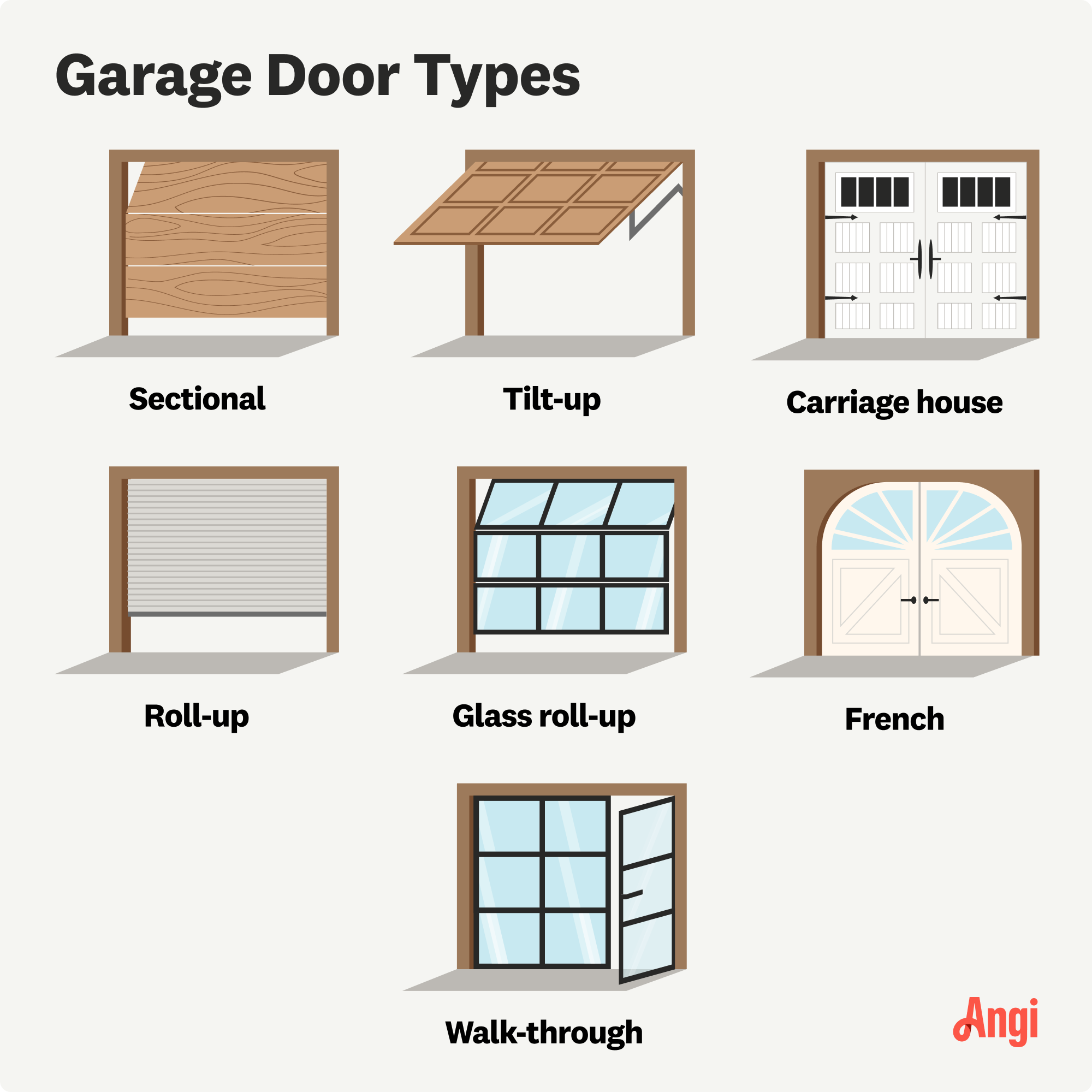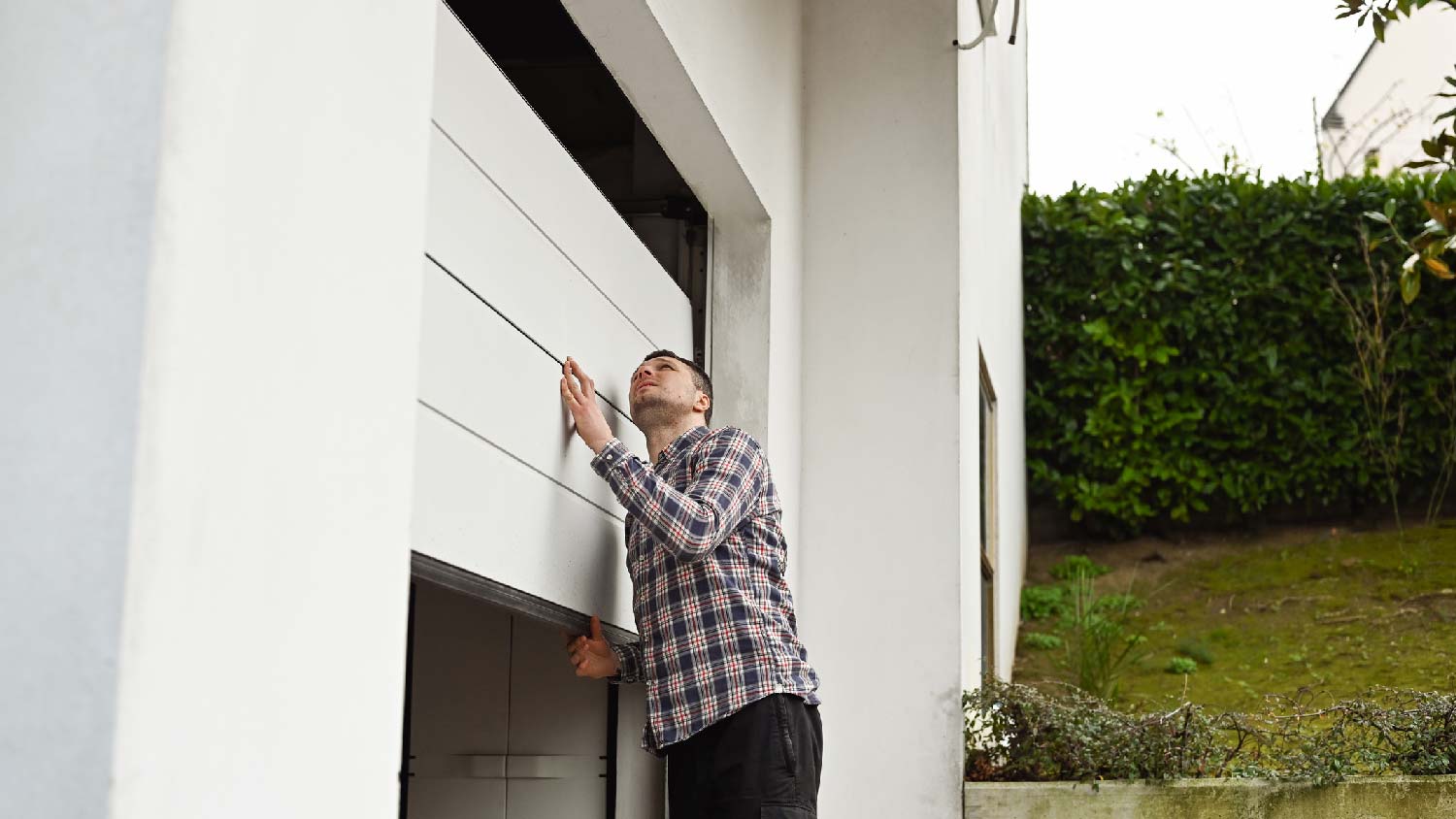
Discover how much garage door panel replacement costs based on factors like the panel size, material, style, and local labor rates.
Garage door service costs depend on your project and location. Check with a local pro for your specific job.
Garage door replacement costs in Seattle start at $1,300 for insulated sectional steel models.
Carriage-style garage doors cost $2,600, adding charm to Seattle’s historic craftsman homes.
Professional installation runs up to $700 in Seattle, reflecting higher labor and weatherproofing needs.
Homeowners in Seattle, Washington should budget carefully for a garage door replacement. Garage door replacement in Seattle costs $1,460 on average, but ranges from $910 to $2,074. Seattle’s damp, cool climate makes insulated and rust-resistant doors worthwhile for long-term durability.
Local labor rates and the city’s mix of historic and modern homes can affect installation costs. Choosing a weather-resistant material suited to frequent rain and fluctuating temperatures ensures your new garage door performs well year-round while boosting your home’s value and curb appeal.
Several factors influence garage door replacement costs in Seattle, Washington, including door type, material, and size. From sleek glass roll-ups to traditional carriage styles, each option impacts durability, curb appeal, and overall project price.
The type of garage door you choose will influence the total project cost, with standard options (such as sectional and roll-up doors) costing less than custom ones (such as French or carriage house doors). Like most projects, the further you move away from common materials and styles, the more expensive it will be.

| Door Type | Average Cost | Description |
|---|---|---|
| Sectional (steel, insulated) | $1,300–$2,900 | Most popular in Seattle; handles damp climate well; provides strong insulation against cool weather |
| Tilt-up (one solid panel) | $1,200–$2,600 | Budget-friendly option; heavier to lift; best for smaller garages or detached units |
| Carriage-house/carriage-style | $2,600–$6,200 | Adds classic curb appeal common in Seattle’s Craftsman homes; often wood or faux-wood composite |
| Roll-up (sheet metal coil) | $1,600–$3,100 | Compact and durable choice for urban garages with tight clearances; resists rust with proper coating |
| Glass roll-up (frameless) | $4,200–$9,200 | Modern look favored in newer Seattle builds; uses tempered glass and aluminum framing for weather resistance |
| French doors (dual swing doors) | $2,100–$5,200 | Elegant; requires precise weather sealing due to frequent rain and fluctuating temperatures |
| Walk-through (pedestrian door built-in) | $350–$850 extra | Offers convenience in rainy weather; needs reinforced frame and high-quality seals to prevent moisture leaks |
Seattle’s cool, rainy climate makes moisture resistance and insulation essential. Opt for insulated garage doors that use galvanized steel or composite doors with weatherstripping to prevent rust, swelling, and heat loss while maintaining smooth operation through damp winters and fluctuating seasonal temperatures.
If you’re wondering how much a new garage door costs, take a look at this breakdown by material type.
| Material Type | Average Cost | Pros | Cons |
|---|---|---|---|
| Steel | $1,200–$3,000 | Durable; low-maintenance; resists Seattle’s humidity when galvanized or powder-coated | Can rust if coating is damaged; limited insulation without upgrade |
| Aluminum | $1,400–$3,200 | Lightweight; corrosion-resistant—good for coastal moisture | Dents easily; poor insulation in colder months |
| Wood | $2,000–$5,500 | Classic aesthetic that complements craftsman homes | Requires sealing and frequent upkeep in wet conditions |
| Composite/faux wood | $2,200–$5,000 | Moisture-resistant; mimics look of wood; minimal maintenance | Slightly higher upfront cost |
| Vinyl | $1,000–$2,500 | Resists rust, rot, and moisture damage—great for rainy Seattle | Limited color choices; can warp in temperature swings |
| Fiberglass | $1,500–$3,500 | Lightweight; resists salt air and rust | Can yellow or crack with age; lower insulation value |
| Glass/aluminum frame | $4,000–$9,000+ | Modern aesthetic; natural light; corrosion-resistant frame | Expensive; requires insulated glass to prevent condensation |
The standard single-car garage door in an American house is between seven and 10 feet wide and seven to eight feet tall. As you can expect, two-car garage door replacement costs will be higher, and the same goes for three-car garage doors. Opting for multiple single garage doors (instead of double doors) will also raise your price tag, as these require more labor and materials to install.
Some homeowners choose garage doors that aren’t a standard size. Garage doors with custom measurements will be more expensive to replace.
| Size (Feet) | Average Cost |
|---|---|
| Single-car (8x7) | $1,000–$2,700 |
| Double-car (16x7) | $1,600–$4,000 |
| Three-car (24x7) | $2,800–$5,800 |
| Oversized/custom sizes | $3,200–$7,200+ |
Homeowners in Seattle should factor in labor, permits, taxes, and upkeep when estimating garage door replacement costs. Local climate and building regulations can also affect overall project pricing.
Professional garage door installation in Seattle averages $300 to $700, depending on door type and opener setup. Installers often charge slightly more for weatherproofing or corrosion-resistant hardware to handle the city’s damp conditions, especially in older neighborhoods with limited access.
Most replacements don’t require a full permit unless framing changes occur, but compliance with Seattle Department of Construction & Inspections (SDCI) standards is required. Permit costs run $75 to $200, with additional design review possible for historic or custom carriage-style garage doors.
Seattle’s combined sales tax is 10.25%, applying to materials and labor. Tipping is optional but appreciated for difficult installations—$20 to $50 per technician is common for multi-door or complex garage door replacement projects in the Seattle area.
Rain and humidity cause wear on springs, rollers, and weather seals. Annual inspections, lubrication, and seal replacements prevent corrosion and noise. Wooden and composite doors benefit from resealing, while steel models need rust checks after heavy Seattle rain or winter moisture exposure.
A new garage door can significantly boost a Seattle home’s value, safety, and curb appeal. National data shows an average of 194% return on investment (ROI). In Seattle’s competitive market, a stylish, insulated garage door enhances energy efficiency and increases resale potential year-round.
Home is the most important place on earth, which is why Angi has helped more than 150 million homeowners transform their houses into homes they adore. To help homeowners with their next project, Angi provides readers with the most accurate cost data and upholds strict editorial standards. We survey real Angi customers about their project costs to develop the pricing data you see, so you can make the best decisions for you and your home. We pair this data with research from reputable sources, including the U.S. Bureau of Labor Statistics, academic journals, market studies, and interviews with industry experts—all to ensure our prices reflect real-world projects.
Want to help us improve our cost data? Send us a recent project quote to [email protected]. Quotes and personal information will not be shared publicly.
From average costs to expert advice, get all the answers you need to get your job done.

Discover how much garage door panel replacement costs based on factors like the panel size, material, style, and local labor rates.

This guide will help you determine the true cost of installing garage door openers. You’ll need to consider type, horsepower, and other factors.
.jpg?impolicy=leadImage)
This guide shows you what you can expect for garage door roller replacement cost if your rollers are sticking or screeching.

You can boost your curb appeal with a new garage door, but you shouldn’t try to install it yourself. Here’s who to hire to repair or install a garage door.

You may be able to convert garage door to entry door as part of a garage renovation. Learn about how hard it is to change your garage door into a regular door.

A garage door sensor not working can be from obstructions, debris, electrical issues, and more. Read on to learn why your garage door sensors are not working.